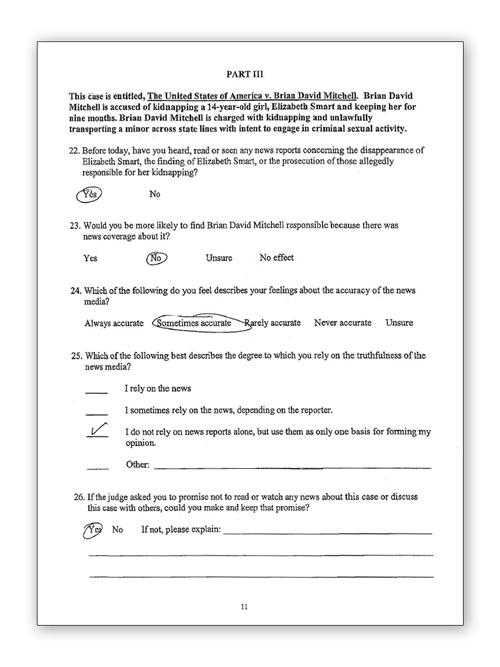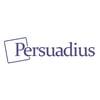Crafting an excellent and useful jury questionnaire can be a challenging task, but with the help of jury consultants, it can become a breeze. A well-designed jury questionnaire is an essential tool in ensuring a fair and impartial jury selection process. Here are some tips to help you create an effective jury questionnaire with the assistance of jury consultants.
1. Identify the Key Issues
Before crafting your questionnaire, you need to identify the key issues in your case. This will help you determine the type of questions you need to ask potential jurors. Jury consultants can assist in identifying the key issues and developing questions that will help you understand how potential jurors feel about those issues.
For example, in a personal injury case, the key issues may revolve around negligence and liability. Understanding these key issues will allow you to tailor your questions to gauge potential jurors' attitudes and biases towards these topics.
2. Keep It Short and Simple
Jury questionnaires should be short and easy to understand. Long and complicated questions can confuse potential jurors and lead to inaccurate responses. Consulting with jury experts can help you create concise and straightforward questions that are easy to answer.
Instead of asking convoluted questions, consider breaking them down into simpler, more direct inquiries. For instance, instead of asking, "Do you have any personal biases that may affect your ability to be impartial in this case?" you can ask, "Have you ever been involved in a similar case that could influence your ability to be fair in this trial?"
3. Use Open-Ended Questions
Open-ended questions can provide valuable insights into the opinions and beliefs of potential jurors. They allow jurors to express their thoughts and feelings in their own words, rather than being limited to a set of predetermined responses. Jury consultants can help you craft open-ended questions that will provide valuable information about potential jurors.
For instance, instead of asking, "Do you believe in the presumption of innocence?" you can ask, "In your own words, explain what the presumption of innocence means to you."
4. Avoid Leading Questions
Leading questions can bias the responses of potential jurors, leading to an unfair and inaccurate selection process. Jury consultants can help you identify and eliminate leading questions from your questionnaire.
It's important to ask questions that are neutral and unbiased, allowing potential jurors to provide their honest opinions. For example, instead of asking, "Don't you think the defendant's actions were negligent?" you can ask, "Based on the evidence presented, how would you assess the defendant's actions?"
5. Consider Demographics
Demographic information can be useful in selecting a fair and impartial jury. Jury consultants can advise you on the appropriate demographic information to include in your questionnaire, such as age, race, gender, and occupation.
While it's important not to make assumptions based on demographics alone, certain demographic factors may be relevant to the case. For example, in a discrimination case, the race or gender of potential jurors may be an important consideration. However, it's essential to ensure that demographic questions are asked in a respectful and non-discriminatory manner.
6. Test Your Questionnaire
It is crucial to test your questionnaire before using it in the selection process. Testing can help you identify any issues with the questions and ensure that they are effective in obtaining the information you need. Jury consultants can assist in testing your questionnaire and making any necessary changes.
Conducting a pilot study with a small group of individuals similar to your target jurors can help you refine your questions and identify any potential biases or misunderstandings. This will ensure that your final questionnaire is clear, concise, and effective in gathering the necessary information.
7. Analyze the Results
Once you have collected the responses to your questionnaire, it is essential to analyze the results. Jury consultants can help you interpret the data and identify any patterns or biases that may exist. This information can be used to make informed decisions during the jury selection process.
By analyzing the responses, you can identify potential jurors who may have strong biases that could affect their ability to be impartial. Additionally, you can identify any demographic imbalances that may exist and take steps to address them during the selection process.
Crafting an excellent and useful jury questionnaire is essential in ensuring a fair and impartial jury selection process. By working with experienced jury consultants, you can develop effective questions that will provide valuable insights into potential jurors. Remember to keep your questionnaire short and straightforward, use open-ended questions, avoid leading questions, consider demographics, test your questionnaire, and analyze the results thoroughly. With these tips, you can create a successful jury questionnaire that will help you select a fair and impartial jury for your case.
Related articles about jury selection, voir dire, jury consulting and mock trials:
- Learn about A2L Consulting's trial consulting and jury consulting services
- 5 Questions to Always Ask in Voir Dire
- 10 Key Things to Know About Social Media & Jury Consulting
- 10 Ways to Spot Your Jury Foreman
- 13 Changes Coming to Jury Consulting & Trial Consulting
- 10 Things Every Mock Jury Says Everytime
- A2L voted #1 Jury Consultants by the Readers of LegalTimes






Leave a Comment